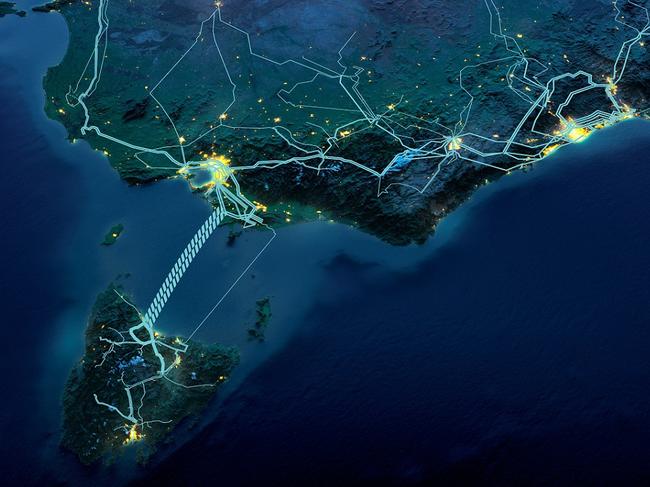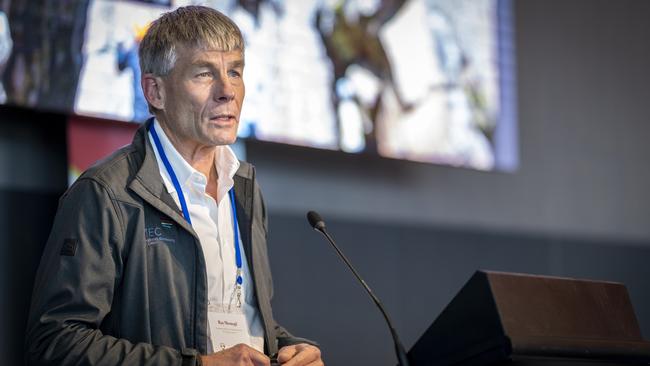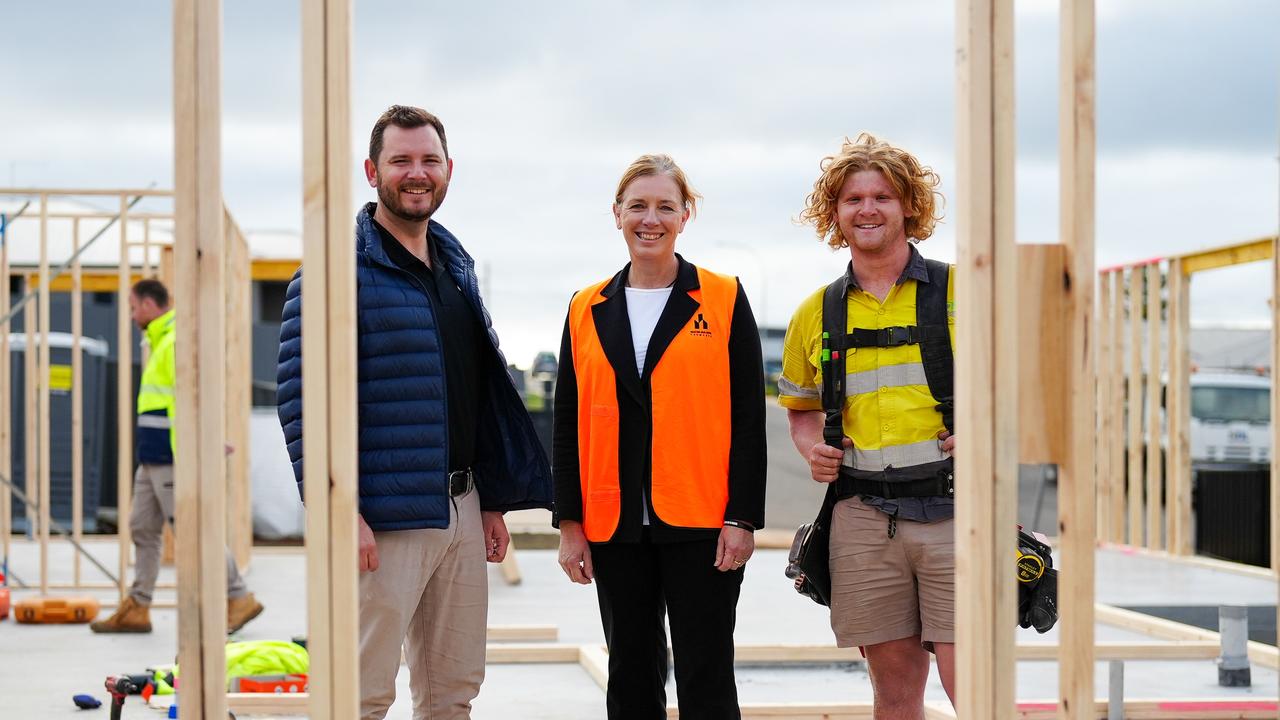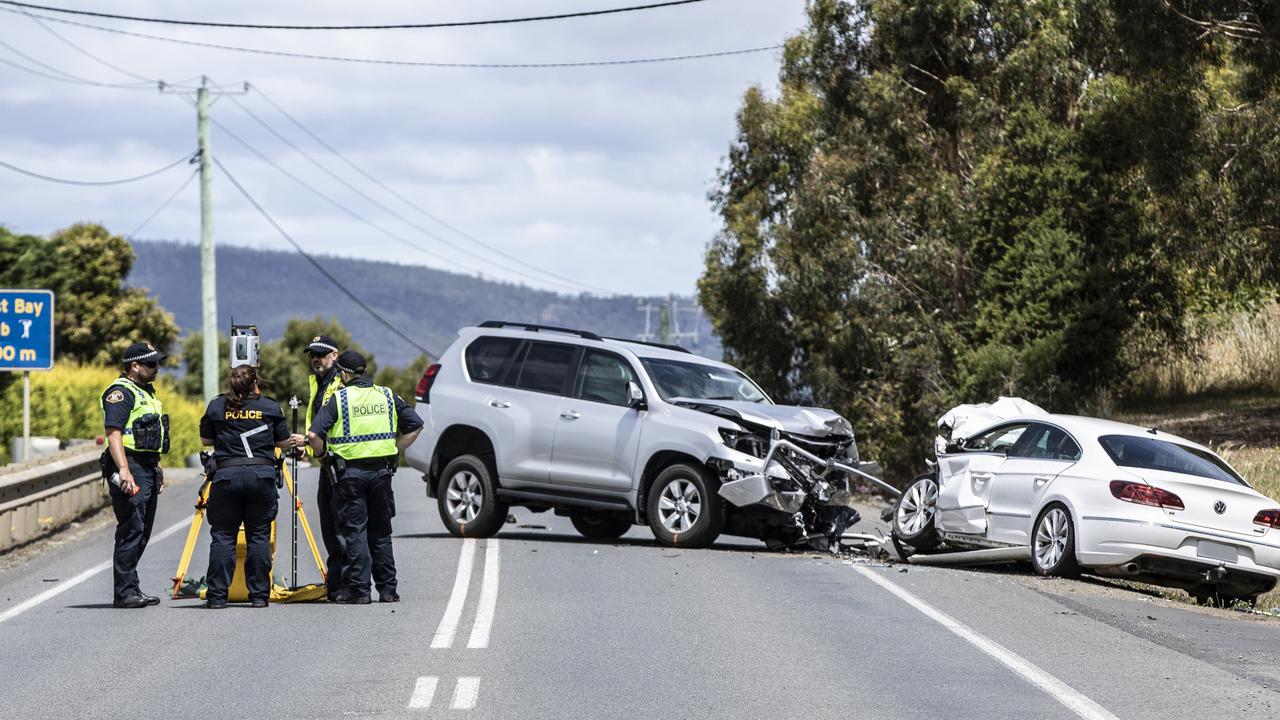Marinus Link: Tasmanian Minerals, Manufacturing and Energy Council offers ‘conditional’ support
The peak industry body representing Tasmania’s energy, minerals and manufacturing sectors has offered its “conditional” support for Marinus Link, after initially expressing reservations about the $3b project.

Future Tasmania
Don't miss out on the headlines from Future Tasmania. Followed categories will be added to My News.
THE peak industry body representing Tasmania’s energy, minerals and manufacturing sectors has offered its “conditional” support for the Marinus Link interconnector, after initially expressing reservations about the $3b project.
Tasmanian Minerals, Manufacturing and Energy Council chief executive, Ray Mostogl, said the organisation’s “concern” had been that Marinus was going to slug “the mums and dads in Tasmania and businesses in Tasmania” with the cost of the 345km electricity cable.
“Because they would be paying for, as part of their network charges, the ongoing cost of the recovery of that (project),” he explained during a panel discussion at the Mercury’s Future Tasmania event at Wrest Point on Friday.
Mr Mostogl said it would be preferable for Hydro Tasmania and Marinus Link to “basically fund the whole project and … use the revenue that they’re going to get to … pay for the cost of the project and … ring-fence the rest of the Tasmanian users”.
However, the TMEC boss said recent energy policy developments in Canberra, particularly amendments to the Albanese government’s safeguard mechanism, had made the business case for Marinus “a whole lot better”.
“I think the National Electricity Market will have more disruption, with coal coming off and not having dispatchable gas available,” he said.
“Because the renewables that are coming on will not be able to do the full work.”

Mr Mostogl said the state government’s announcement of a renewable energy dividend payment for all Tasmanians had also bolstered the case for the new interconnector.
“To me, that’s a signal that we’re going to make sure that the existing consumers get some benefit which shields them from the pricing that may come from that variation (associated with Marinus Link),” he said.
“So from that point of view, our organisation is now a conditional supporter of Marinus, on the basis that we’ve got the import understanding correct and … that the energy dividend does materialise and is meaningful.”
The 1500MW cable will run across Bass Strait, from Heybridge, east of Burnie, to Hazlewood in Victoria’s Latrobe Valley.
Construction is set to commence in two stages from early 2025. Stage one is expected to be completed and in service by 2028-29, while stage two will be completed and in service by 2030-31.

Marinus Link chief executive Caroline Wykamp said the interconnector would attract new industry and new jobs to the island and would make Tasmania a more prosperous place.
“Yesterday … at about midday … when there was a lot of solar in Victoria, the spot market price … was around about -$50 per megawatt hour,” she said. “So what does that mean? That means that across the (Basslink) interconnection, Victoria was sending electricity to Tasmania and they were paying us to take their energy.
“So we were storing their energy, then later in the afternoon, early evening, the prices were around $200 a megawatt hour in Victoria.
“So Tasmania stores it up, gets paid to do it and then sells it back to Victoria at $200 a megawatt hour.
“That’s the power of having interconnection, that’s the power of having the biggest battery in Australia (hydro storage).”
Professor Richard Eccleston, the director of the Tasmanian Policy Exchange at the University of Tasmania, said Marinus Link would be a key component of Australia’s mission to achieve net-zero emissions by 2050.
“Hydro storage and being able to act as the battery of the nation is going to be incredibly important in reducing national emissions in Australia in the 2030s,” he said.
“Because without that we’d have to rely on a lot of gas. So if we’re thinking about emissions nationally, then I think Marinus has got a really important role to play.”
A final investment decision on Marinus Link is expected next year.


